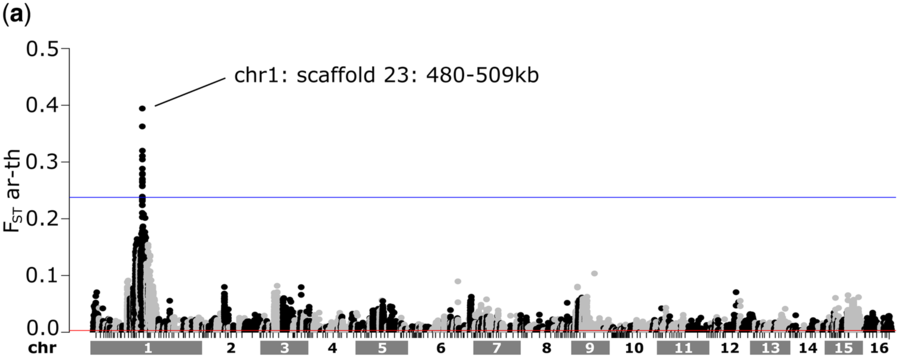
genomics of thelytoky in honeybees
The evolution of altruism in complex insect societies is arguably one of the major transitions in evolution and inclusive fitness theory plausibly explains why this is an evolutionary stable strategy. Yet, workers of the South African Cape honey bee (Apis mellifera capensis) can reverse to selfish behavior by becoming social parasites and parthenogenetically producing female offspring (thelytoky). Using a joint mapping and population genomics approach, in combination with a time-course transcript abundance dynamics analysis, we show that a single nucleotide polymorphism at the mapped thelytoky locus (Th) is associated with the iconic thelytokous phenotype. Th forms a linkage group with the ecdysis-triggering hormone receptor (Ethr) within a nonrecombining region under strong selection in the genome. A balanced detrimental allele system plausibly explains why the trait is specific to A. m. capensis and cannot easily establish itself into genomes of other honey bee subspecies.






